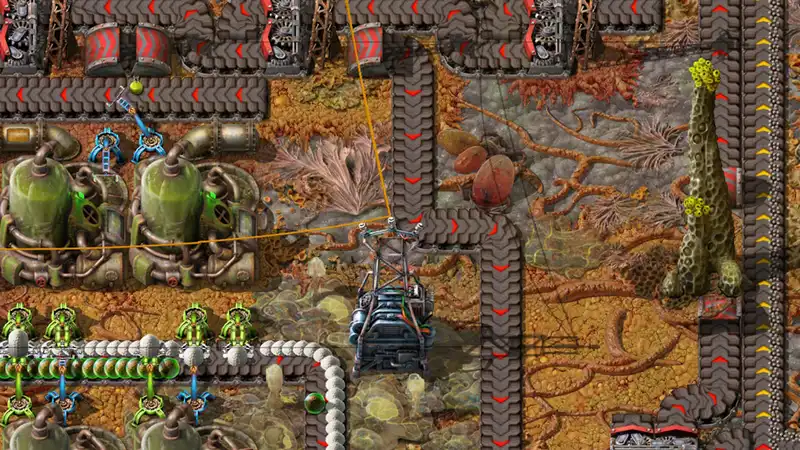Factorio's interstellar expansion "Space Age" will be released on October 21: that's enough time for developers to polish the game after the summer break and enough time to do bug fixes before the Christmas vacations.
"Factorio: Space Age" has already been in development for over three years and was first announced in February 2021. But it will also be a big one; Wube said in February 2022 that "Space Age" will be as big as the base game.
Space Age will continue where Factorio left off, but with a slight tweak: the single rocket launch that marks the end of the base campaign will actually be the first of several launches, each with its "own themes, resources, challenges, and gameplay mechanics" It will send the rocket into one of several new worlds.
What is very interesting about the release date announcement is that Space Age will add five new planets to Factorio, instead of the previously promised four: the fifth new world is a "mysterious" planet that "promises the most unique gameplay, but remains a mystery. It is the planet farthest from the sun, so it is dark and cold".
But before deep space exploration can begin, the primary task is to create a space platform, essentially a flying factory that will allow interplanetary cargo transport. The expansion will also add elevated rails, promising "a whole new dimension of challenges and possibilities" for the rail network, while a new "quality" tier from Normal to Legendary will be added, giving bonuses and advantages to all items, machines, and equipment in the game.
Factorio: Space Age also offers new enemies and defenses, and some of these new planets are apparently not very friendly.
Concurrent with the release of the Space Age expansion, Factorio will be getting a major 2.0 update. This update will include smarter worker robots, new rails, remote views, a new fluid system, and numerous other upgrades and improvements.
Collectively, the enhancements and updates promise to open the door for Factorio to perform even more amazing feats in the future-perhaps someday producing a million "unimaginable" sciences per minute will seem downright quaint.


Comments